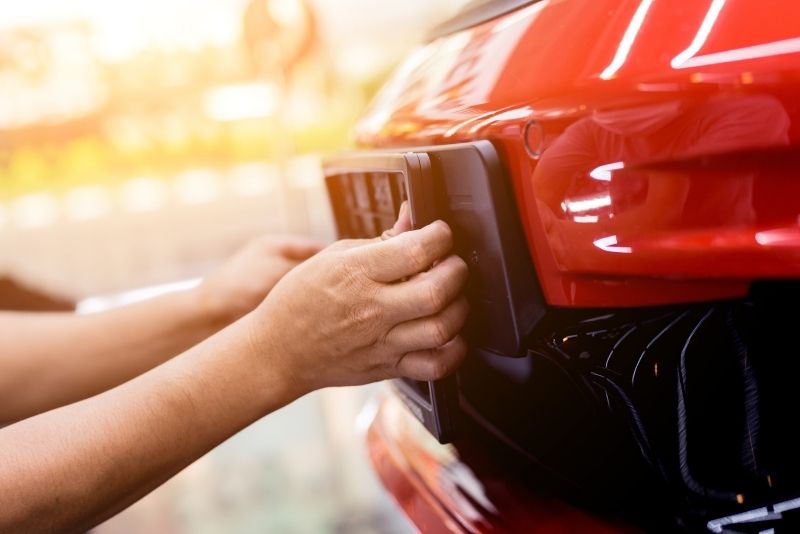How to avoid a car scam

It’s a sad fact of life that there are people who will try and take advantage of you by pretending to be someone they are not.
Whether you are selling your car, renewing your road tax or browsing the online classifieds, there will be some shady people who will see it as an opportunity to trick you out of your car and/or money.
That’s why the motoring experts at Carsite have pooled their knowledge to come up with the Top Five car scams and frauds so you can protect yourself.
1. Road Tax scam
You’ll get a text message or phone call that will say you’re owed a refund for your Road Tax. The scammer will pretend to be from the DVLA or HMRC and ask for your bank details or give you a link to a website so they can pay the money back.
Government departments like the DVLA and HMRC are unlikely to offer you a refund over the phone or text message – do not give any personal details to someone who cold calls you and offers a tax refund.
Scam texts or emails usually start with ‘Dear Sir’ or ‘Dear Customer’, so be wary of any messages that don’t know your name, address or vehicle details.
Scammers have also become skilled at reproducing official websites, but the web address of the fraudulent site will differ ever so slightly from the original.
Never click any links from a text or email from an unknown sender. If in doubt, call the DVLA or HMRC to confirm the message is genuine.
2. Car matching scam
This trick targets car sellers and uses high-pressure sales techniques to cheat you out of your money. The fraud starts with a phone call or email that is designed to push you into a quick sale.
The scammer will claim to have a buyer waiting for your car – all you need to do is pay a ‘finder’s fee’ to get a quick sale. The fee itself will be under £100 but the scammer will likely tell you that their buyer is willing to pay well over your asking price (which leads you to believe that you’ll be handsomely rewarded for using their service).
In reality, the buyer doesn’t exist, and the buyer will try to steal your money and get your bank account details so they can access your funds.
Never give bank details to anyone who cold calls you. And ask yourself, why would someone become involved with a vehicle matching company rather than just looking for a car themselves?
3. The cloned car scam
Car cloning is a crime where a vehicle is given different number plates to hide its true identity. This usually happens when the car is stolen or unroadworthy, with the cloned number plates being sourced from a similar model with a clean history that will pass any online history check service.
Some sellers will also try to clone a car if there is outstanding finance owed on it or if there are large fines attached to the car that they are unwilling to pay.
Car cloning criminals do not want you to know where they live. As a result, they will insist that you meet them at a public car park or a layby. They may also offer to bring the vehicle to your home or supply a long list of excuses as to why you are unable to visit their home address.
Always insist on viewing the car at the seller’s home. You should also ask to see some form of ID that will confirm both the seller’s identity and address. These details should match the car’s V5C logbook.
4. The phantom car scam
One of the most common used car scams, this one involves the placement of an advertisement with the sole purpose of extracting money fraudulently from an eager buyer.
In most cases, the advert will feature a popular car with a below-average price tag that will ultimately be too good to be true.
Always be wary of any car being sold with a story that involves the owner leaving the country or the car being shipped in from overseas (hence the cheap price). And never transfer any money to anyone without having seen the car in the metal at the seller’s address.
5. The faulty car scam
If you are selling your car then it’s not unusual for a potential buyer to bring along a friend or a family relative to inspect the vehicle. However, with the faulty car scam, this person will do everything they can to convince you the car is overpriced or requires costly repairs to make it roadworthy.
Never conduct a car viewing on your own. The potential buyer may attempt to distract you and give their friend or relative the opportunity to deposit oil on your driveway or damage your vehicle and claim your price is unrealistic.
Ensure you, or a friend or family member is watching everyone at all times.
We hope that some of this advice from our friends at Carsite has made you more aware of some of the most common car scams. Believe it or not, it is also possible to be fooled into purchasing fake car insurance, or fake proof of no-discounts – and neither will protect you in the event of a claim.
If you need advice, or are concerned you have been targeted by a ‘ghost-broker’, just give your local A-Plan branch a call for peace of mind.







